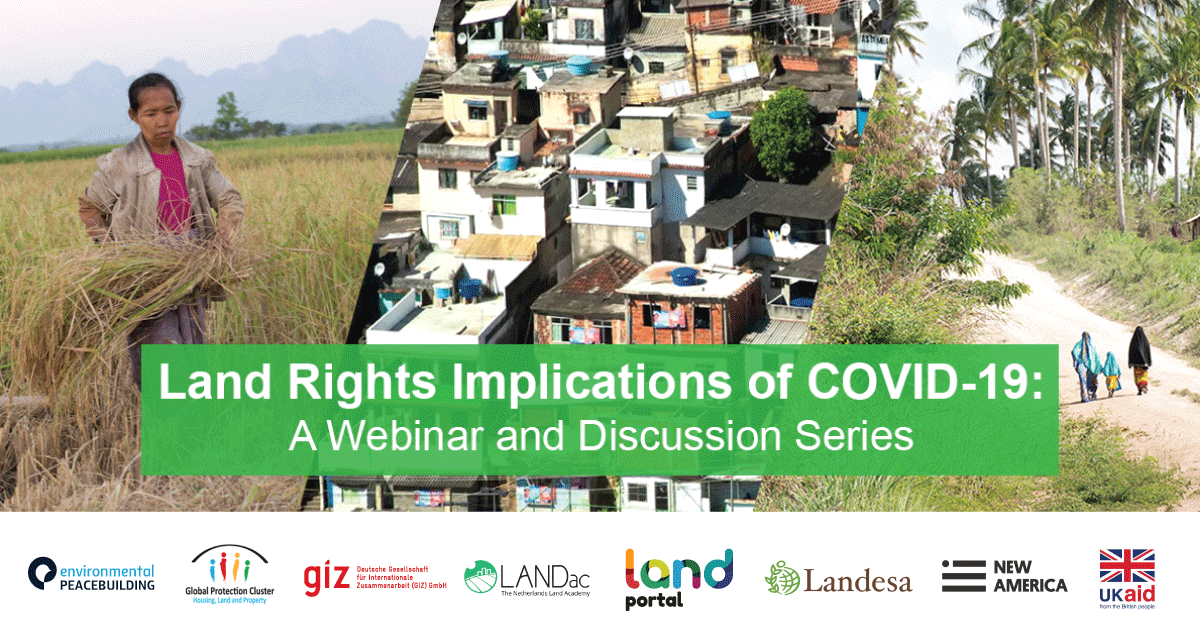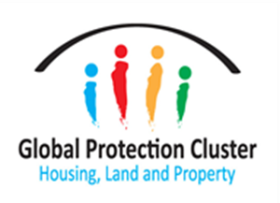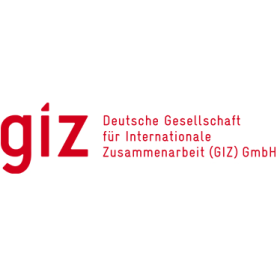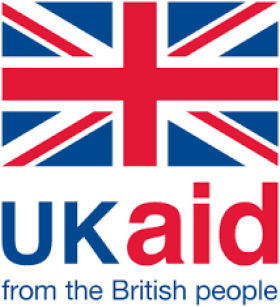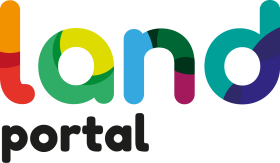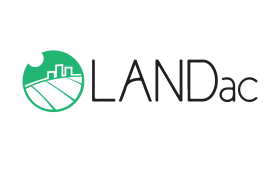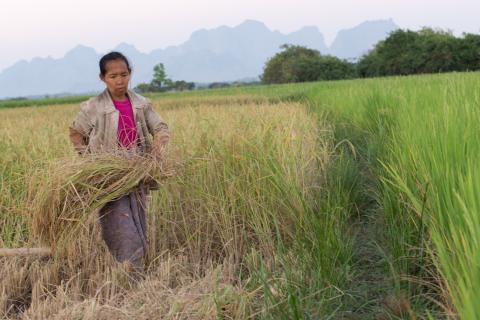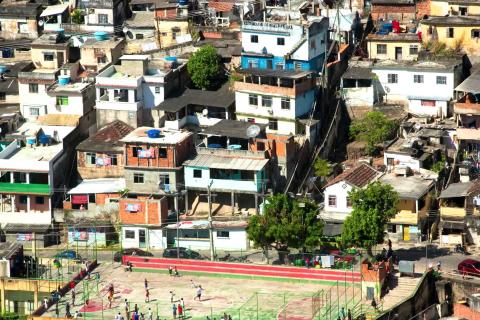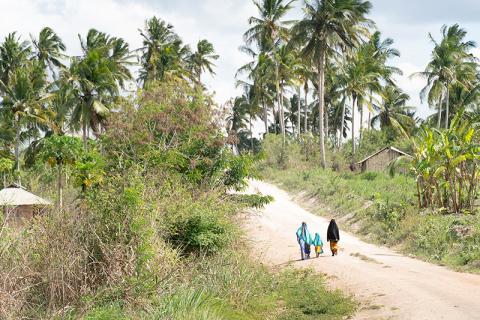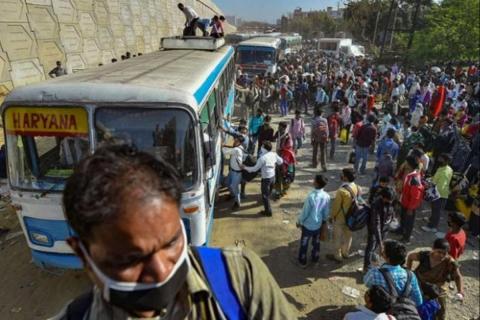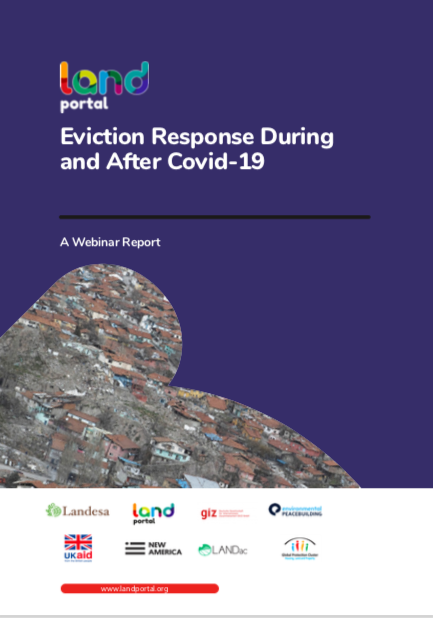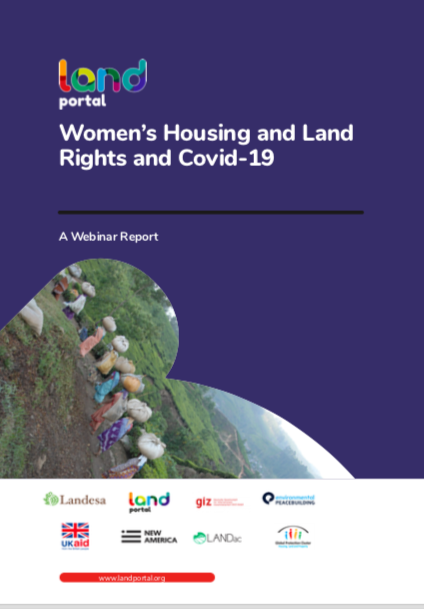Join us for the Land Rights and COVID-19 webinar and discussion series, which is presented by Land Portal, Landesa, the Global Protection Cluster HLP AOR and GIZ, with organizing support from Cadasta Foundation, Environmental Peacebuilding Association, LANDac, New America, PlaceFund and the UK's Department for International Development (DFID).
As governments press pause on economic activities and people change their work and social behaviors to halt the spread of COVID-19, there are several hidden dimensions that can put pressure on land governance and management and threaten the land rights security of millions worldwide. The response to the pandemic has unfolded like a slow-moving natural disaster, disrupting the daily pattern of our lives and revealing stressors on our institutions. And like a natural disaster, how countries and communities prepare – both before and after a catastrophic event – can be the difference in long-term prospects for resilience and recovery.
What steps can individuals and communities take to ensure they have the right to retain or return to their land and productive assets? How will COVID-19’s impact on the global food systems affect countries that rely on food imports? How can governments maintain land administration amid the disruptive nature of the pandemic? How will immigration and internal migration contribute to the “de-urbanization” of cities and increase demand for land in the countryside? What are the impacts of COVID-19 on housing? What are the gender dimensions of land rights in households where shelter orders are changing social behaviors?
This series of webinars and subsequent discussion seek to develop a set of actionable recommendations to policy makers, as well as practical recommendations based on what is happening on the ground. We aim to identify both short term and longer term actions that can effectively contribute to supporting land governance stakeholders facing an ongoing pandemic, while looking forward to post-pandemic priorities.
